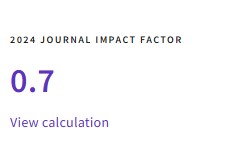Assessment of basic motor skills in the sports initiation process
DOI:
https://doi.org/10.24310/riccafd.2023.v12i1.16233Keywords:
motor evaluation, basic motor skills, sports initiationAbstract
Assessment of basic motor skills in the sports initiation process is necessary to determine the state of motor developmentt, planning training sessionst and improving skills that need to be strengthened. The objective of this research was to evaluate the motor development of children who are part of a sports initiation school at Medellín city. A descriptive quantitative research method was used, because independent variables were not manipulated and was intended a motor evaluation. The information collection instrument used was the battery of basic motor skills for Colombian children between 5 and 11 years old. The results established that the basic motor skills of locomotion and manipulation are in an intermediate phase of development and stabilization ability in a low and intermediate low state. This study allows us to conclude that it is necessary for the sports initiation processes to attend to and stimulate basic motor skills, because these are fundamental components for the processes and sports performance of children. It is also, expected that sports clubs take motor evaluations into account to guide their training processes.
Downloads
Metrics
References
Smith Palacio, E., & Bermejo-García, S. (2021). Efectividad del desarrollo del autocontrol a través de la Educación Física. Revista Iberoamericana De Ciencias de la actividad física y el deporte, 10(2), 126-139. https://doi.org/10.24310/riccafd.2021.v10i2.11160
Acevedo JP. Formación profesional en el campo del deporte en Medellín: un estudio desde los estudiantes universitarios, VIREF Revista de Educación Física. 2020 sep 11; 9(3): 76–86.
Webster EK, & Ulrich DA. Evaluation of the psychometric properties of the test of gross motor development—third edition. Journal of Motor Learning and Development, 2017; 5(1), 45-58. https://doi.org/10.1123/jmld.2016-0003
Llivisaca CL, Arcos HG, Mediavilla CM, León DA. Evaluación de capacidades físicas básicas en edades tempranas orientada a la iniciación deportiva. Revisión literaria. Polo del Conocimiento: Revista científico-profesional. 2020). 5(11), 277-296. https://doi: 10.23857/pc.v5i11.1923
Cardona LM, Arcila JC, Marín JP. Nuevas tendencias en actividad física y deporte. Una propuesta curricular para programas de profesional en deporte. Revista Boletín Redipe. 2022; 11(3), 364–376. https://doi.org/10.36260/rbr.v11i3.1726
Ruiz L. Desarrollo Motor y Actividad Física. Gymnos; 1987.
Batalla Flores A. Habilidades motrices. 2 ed. Barcelona: INDE; 2018.
Castañer M, Camerino O. La educación física en la enseñanza primaria: Una propuesta curricular para la reforma, Editorial Inde. Zaragoza España, 4ta edición; 2001.
Sánchez BF, Amador FR. La iniciación deportiva y el deporte escolar. 3ra Ed. Barcelona: INDE; 1999.
Sánchez BF. Bases para una didáctica de la educación física y el deporte. Gymnos; 1992.
Hungler P, Denise P. Investigación científica en ciencias de la salud. En: Metodología de la investigación. 6ª ed. México DF: McGraw Hill/Interamericana de México: 2000; 2-10.
Creswell JW, Garrett AL. The movement of mixed methods research and the role of educators. South African journal of education. 2008; 28(3), 321-333. https://doi: 10.15700/saje.v28n3a176
González EV, Montoya N, Cardona Y, Marín J, Muñoz B. Diseño y Validación de una batería de habilidades motrices básicas para niños entre 5 y 11 años. Revista Boletín Redipe. 2021. 10(2), 165– 181. https://doi.org/10.36260/rbr.v10i2.1204
Cardona L, Avendaño F, Marín, J. Prácticas emergentes en actividad física y deporte. Información Tecnológica. 2021; 32(3), 149-158. http://dx.doi.org/10.4067/S0718-07642021000300149
Castaño JP. Política pública del deporte: Ruta nacional, regional y local. EmásF: revista digital de educación física. 2019; (57), 9-13.
Marín J, Padierna J. Representaciones sociales sobre formación profesional en estudiantes de actividad física y deporte en Medellín. Revista Virtual Universidad Católica Del Norte. 2020; 60, 251–270. https://www.doi.org/10.35575/rvucn.n60a13
Hernández HJ, Rosas CS, Rubio MF, Paredes AC. La ludomotricidad y habilidades motrices básicas locomotrices (caminar, correr y saltar): Una propuesta didáctica para la clase de Educación Física en México. Retos: nuevas tendencias en educación física, deporte y recreación. 2022; (44), 1141-1146.
Narváez EA, Arcos HG. Enseñanza del fútbol basada en una planificación integral para la iniciación deportiva. Revista Arbitrada Interdisciplinaria Koinonía. 2022; 7(2), 351-372. http://dx.doi.org/10.35381/r.k.v7i2.1948
Abella LM, Giraud BY. Metodología para evaluar las habilidades motrices básicas en estudiantes de la educación básica primaria/Methodology to evaluate basic motor skills in students of primary basic education. Mendive. 2021; 19(3), 743-754. https://mendive.upr.edu.cu/index.php/MendiveUPR/article/view/2459
Marín JP. Representaciones sociales sobre ser entrenador. Revista Observatorio Del Deporte. 2022; 8(2), 19-31. https://doi.org/10.58210/odep281
Downloads
Published
How to Cite
Issue
Section
License
All the contents published in Revista Iberoamericana de Ciencias de la Actividad Física y el Deporte are subject to the Creative Commons Reconocimento-NoComercia-Compartirigual 4.0 license, the full text of which can be found at <http://creativecommons.org/licenses/by-nc-sa/4.0>
They may be copied, used, disseminated, transmitted and publicly exposed, provided that:
The authorship and original source of your publication (Journal, editorial and URL of the work) are cited.
They are not used for commercial purposes.
The existence and specifications of this use license are mentioned.

Copyright is of two kinds: moral rights and patrimonial rights. Moral rights are perpetual, inalienable, inalienable, inalienable, inalienable and imprescriptible prerogatives.
In accordance with copyright legislation, Revista Eviterna recognizes and respects the moral rights of the authors, as well as the ownership of the economic right, which will be transferred to the University of Malaga for dissemination in open access.
The economic rights refer to the benefits obtained by the use or disclosure of the works. Revista Iberoamericana de Ciencias de la Actividad Física y el Deporte is published in open access and is exclusively authorized to carry out or authorize by any means the use, distribution, disclosure, reproduction, adaptation, translation or transformation of the work.
It is the responsibility of the authors to obtain the necessary permissions of the images that are subject to copyright.
















9.png)
